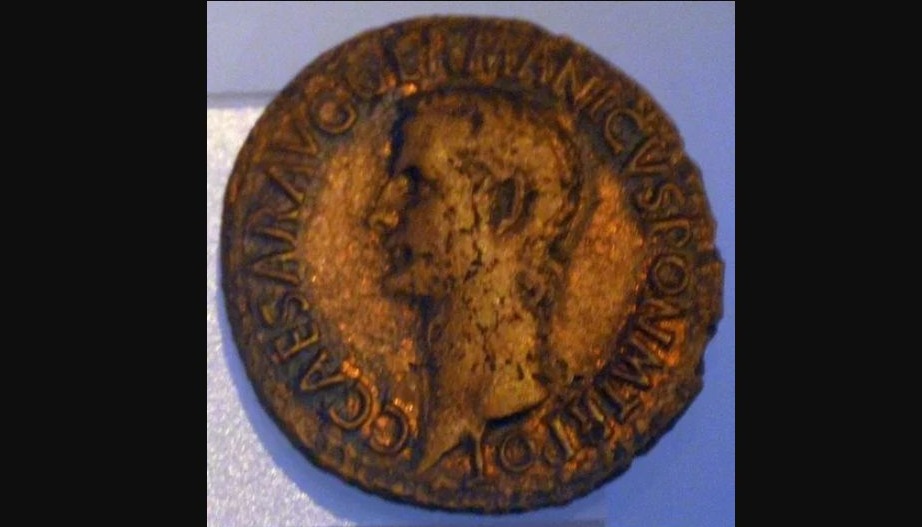Caligula in Katwijk: Exploring the Mysterious History of the Ancient Emperor
When it comes to the intriguing tales of ancient emperors, one name that often stands out is Caligula. Known for his eccentricity and controversial reign, Caligula’s story continues to captivate historians and enthusiasts alike. In this article, we delve into the fascinating history of Caligula, while shedding light on his connection to the town of Katwijk. Prepare to embark on a journey through time as we unravel the mysteries surrounding this enigmatic figure.
The Early Life and Rise to Power
Caligula, originally named Gaius Julius Caesar Augustus Germanicus, was born on August 31, 12 AD, in Antium, Italy. He was the third Roman emperor, ruling from 37 AD until his assassination in 41 AD. As the great-grandson of Augustus, the first emperor of Rome, Caligula’s path to power was paved from an early age.
His childhood was spent in the military camps, where he earned the nickname “Caligula,” meaning “little boot” in Latin, due to the miniature soldier’s uniform he wore as a child. Despite his noble lineage, Caligula faced tragedy early on when his parents and brothers fell victim to political strife.
It was in the wake of these tragic events that Caligula’s rise to power began. In 37 AD, following the assassination of his predecessor Tiberius, he became the youngest Roman emperor at the age of 24. This marked the beginning of a tumultuous reign that would leave a lasting impact on the history of the Roman Empire.
The Controversial Reign of Caligula
Caligula’s reign was filled with controversy and eccentricity. He quickly gained a reputation for his unpredictable behavior and lavish lifestyle. From declaring himself a god to indulging in extravagant parties and constructing opulent palaces, Caligula’s actions often defied societal norms and expectations.
One of the most infamous incidents of his reign was the appointment of his favorite horse, Incitatus, as a consul. This act of absurdity further enhanced Caligula’s reputation as a mad emperor. Additionally, he engaged in public displays of cruelty and sexual debauchery, which only added to the enigma surrounding his rule.
Despite the controversial nature of his reign, Caligula did introduce some reforms and public works projects. He completed the construction of several aqueducts and expanded the imperial palace. However, these accomplishments were overshadowed by his erratic behavior and excessive spending.
Caligula’s Connection to Katwijk
While Caligula’s reign may seem disconnected from the town of Katwijk, there is an intriguing historical link between the two. Katwijk, located in the province of South Holland in the Netherlands, was once home to the ancient Roman military camp of Lugdunum Batavorum.
During his reign, Caligula ordered the construction of this military camp in Katwijk, which served as a strategic outpost for the Roman Empire. The camp played a crucial role in maintaining control over the Germanic tribes in the region.
Although no physical remnants of the camp can be seen today, its historical significance is not forgotten. The presence of Caligula’s military camp in Katwijk serves as a testament to the far-reaching influence of the Roman Empire and the complex history of the region.
Conclusion
In conclusion, the story of Caligula in Katwijk offers a captivating glimpse into the life and reign of one of Rome’s most enigmatic emperors. His controversial actions and eccentric behavior continue to intrigue historians and archeologists, shedding light on the complexities of ancient Roman society.
While Katwijk may seem an unlikely setting for Caligula’s story, the historical connection between the town and the Roman military camp adds another layer of intrigue to the narrative. By exploring the remnants of the past, we gain a deeper understanding of the cultural and historical significance of this ancient emperor.
Frequently Asked Questions (FAQs)
1. Was Caligula really as mad as history portrays him?
Caligula’s reputation for madness stems from the accounts of ancient historians, many of whom were biased or lived decades after his reign. While his eccentric behavior cannot be denied, it is essential to consider the historical context and potential exaggerations in these accounts.
2. What were some of Caligula’s most outrageous acts as emperor?
Caligula’s appointment of his horse as a consul and his indulgence in lavish parties are often cited as some of his most outrageous acts. His public displays of cruelty and sexual debauchery also added to his notorious reputation.
3. How did Caligula’s reign impact the Roman Empire?
Caligula’s reign was marked by controversy and extravagance, which strained the resources of the empire. However, his short rule did not have a lasting impact in terms of political or social reforms.
4. Is there any evidence of Caligula’s military camp in Katwijk?
While no physical remnants of the camp exist today, historical records and archaeological investigations confirm the presence of Caligula’s military camp in Katwijk during his reign.
5. What can we learn from Caligula’s story?
Caligula’s story serves as a reminder of the complexities of human nature and the potential for power to corrupt. It also highlights the importance of critically examining historical accounts and considering multiple perspectives.
